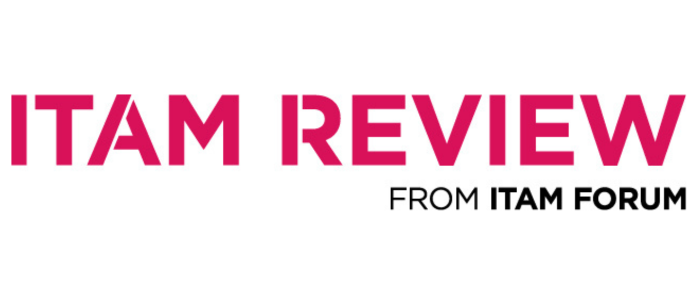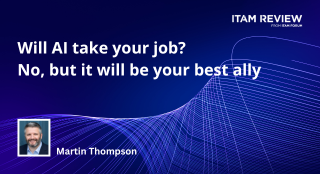Will 'Sustainable IT' be Caught in the Crossfire?
In the days immediately following his inauguration, President Trump and his team declared war on Diversity, Equity, and Inclusion (DEI) programs at the federal level. The impact has been felt far and wide. Many government contractors and private firms are scaling back programs, most notably in the healthcare, education, and financial services sectors.
Is ESG next?
Within private firms, DEI initiatives most typically report into an overall Environmental, Social, and Governance (ESG) program. With the social pillar weakened by scaling back DEI, could this mean environmental programs might also suffer, particularly given Trump’s views on climate policy? In recent days BP has admitted it went too fast too early on green fuel initiatives – too fast in terms of delivering value for its investors, that is.
It’s notable that America’s Big Tech companies have rushed to get involved in the Trump administration’s programs. Even Apple & Microsoft – perhaps seen as the most liberal of tech companies – donated to Trump’s Inauguration ceremony. Perhaps these $1m donations are just gratuities in the tip jar. I’ll refrain from seeing them as tribute to a Don, but they surprised me.
Whilst the focus is on Elon Musk, many other tech entrepreneurs are involved. Peter Theil, CEO of Palantir, is an advisor. David Sacks is AI & Crypto “czar”. Tom Krause (President of Cloud Software Group – home of Citrix – and former President of Broadcom’s Software Division) is a “special government employee” at the US Treasury. Theil, Musk, and Sacks worked closely together at PayPal in its early years. Palantir & Cloud Software Group have very large government contracts. Meanwhile, each DOGE task force sent into federal agencies to find savings includes an IT engineer alongside HR and Legal professionals.
Focus on IT
We’re already seeing the impact of Trump’s focus on IT. On inauguration day, the Stargate Initiative launched. It’s one of the first major tech programs of the new administration. Disappointingly, this has nothing to do with time travelling pharaohs or Marvel superheroes. Although, it’s possibly more significant than either of those fictional threats to Earth.
Stargate is a $500bn private program to build AI infrastructure with Oracle and OpenAI amongst the first investors. Oracle’s involvement is probably the reason the first datacenters to support the program will be built in Texas. If not, I’m struggling to understand why you’d build such power hungry and heat-emitting technology in one of the US’s hottest and driest states – even more so when Texas’ long-standing power grid issues are considered.
At face value, it might be reasonable to assume DOGE would reduce the environmental impact of IT waste by uncovering under-utilised hardware and software. As an example, the Dept of Labour DOGE team identified the following:
However, this is only tinkering around the edges if GreenIT initiatives are watered down for political reasons. I’m not privy to federal contracts, but I guarantee that the DoL isn’t paying commercial rates for those subscriptions. There is already concern in the GreenOps world that sourcing more financially costly green power and cooling solutions might be canceled in favor of immediate savings by using existing fossil fuel reserves.
The ‘Right’ (definition please) Thing To Do
It’s safe to say that for every company actively pursuing environmental goals, there are many more only do so for regulatory reasons. Or, because it’s perceived as being the right thing to do. With such a strong and unpredictable anti-climate change voice at the heart of government, it will be a brave CEO who raises their head to talk about a green win from a ESG program, particularly if they are reliant on the federal purse for revenue.
It’s reasonable to assume DOGE’s attention will eventually switch from DEI to “green tape” – the bureaucratic overhead related to environmental reporting. When that happens, the incentive to make IT more sustainable will be undermined.
Federally funded institutions such as universities and colleges have canceled DEI programs for fear of defunding or legal action. It’s only a small step for federal procurement rules to de-prioritise Net Zero or similar initiatives. This will make them less attractive from a business perspective.
Can’t find what you’re looking for?
More from ITAM News & Analysis
-
AI and ITAM: State of Play 2024 Research Report
In 2024, the ITAM Forum and General Interfaces conducted a global survey (On behalf of the ITAM Forum’s AI+ITAM Working Group) targeting ITAM practitioners, executives, and stakeholders to explore the growing influence of AI on the ... -
We're FinOps. We're Coming for You.
The FinOps Foundation’s recent release of the 2025 FinOps Framework expands its focus beyond public cloud services to encompass a broader spectrum of technology expenditures, including Software-as-a-Service (SaaS) applications and on-premises data centres. This strategic shift, ... -
AI Is Here—And It’s Your Best ITAM Ally, Not Your Replacement
I’ve been asked several times over the last couple of years how AI will impact ITAM and how it will impact jobs. Well, who knows what will actually happen in the future, but my guestimate is ...
Podcast
ITAM training
Similar Posts
-
AI and ITAM: State of Play 2024 Research Report
In 2024, the ITAM Forum and General Interfaces conducted a global survey (On behalf of the ITAM Forum’s AI+ITAM Working Group) targeting ITAM practitioners, executives, and stakeholders to explore the growing influence of AI on the ... -
We're FinOps. We're Coming for You.
The FinOps Foundation’s recent release of the 2025 FinOps Framework expands its focus beyond public cloud services to encompass a broader spectrum of technology expenditures, including Software-as-a-Service (SaaS) applications and on-premises data centres. This strategic shift, ... -
AI Is Here—And It’s Your Best ITAM Ally, Not Your Replacement
I’ve been asked several times over the last couple of years how AI will impact ITAM and how it will impact jobs. Well, who knows what will actually happen in the future, but my guestimate is ... -
FinOps for SaaS: A Step in the Right Direction, But Will It Work?
The FinOps Foundation is making a bold attempt to get better visibility and control of SaaS applications. This has been driven in part because the vast majority of FinOps teams also manage SaaS to some extent. ...





